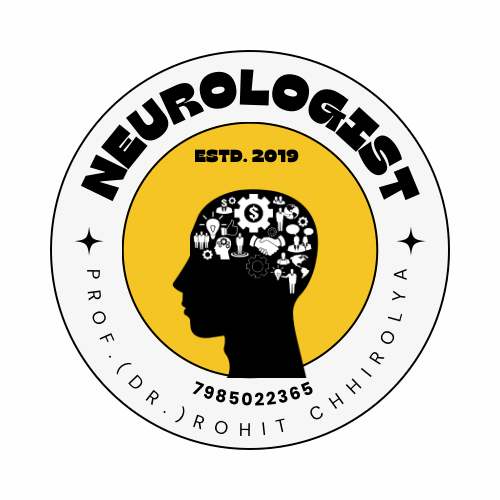How Our Brain Makes Choices About Liking and Disliking:- Prof. (Dr.) Rohit Chhirolya, MD, DM (Neurology) Blog
Every day, we make countless choices—what to eat, whom to befriend, which music to enjoy, and even what values to uphold. But how does our brain decide what we like and dislike? Is it purely a neurological process, or does consciousness play a role? In this article, we explore this question through the lens of neuroscience, Bhagavad Gita, and insights from Sadhguru.
⭕️
The Neuroscience of Liking and Disliking
Our brain’s preferences are shaped by a complex interaction of neurons, neurotransmitters, and past experiences.
The key players in this process are:
1. Dopamine & Reward System
• The brain’s dopaminergic system influences pleasure and motivation. When we experience something enjoyable, dopamine is released in the ventral striatum (part of the basal ganglia), reinforcing that preference.
• If an experience causes discomfort, the brain suppresses dopamine release, leading to aversion.
2. Amygdala & Emotional Memory
• The amygdala plays a critical role in emotional responses. A past negative experience can lead to disliking something, even without rational reasoning. For example, if a child once got sick after eating a certain food, they might instinctively avoid it later.
3. Prefrontal Cortex & Conscious Decisions
• The prefrontal cortex allows us to override instinctive reactions. This is where cultural conditioning, wisdom, and mindfulness influence choices. Even if something triggers pleasure, rational thinking can override it (e.g., avoiding junk food despite craving it).
⭕️
The Wisdom of Bhagavad Gita: Beyond Likes and Dislikes
In the Bhagavad Gita, Lord Krishna explains that attachment (raga) and aversion (dvesha) are obstacles to wisdom and self-realization.
• Chapter 2, Verse 70:
“A person who remains unmoved by desires, like an ocean undisturbed by rivers flowing into it, attains peace.”
This means that true contentment is beyond the cycle of liking and disliking. If we let external things dictate our emotions, we remain in a reactive state, which neuroscience confirms as an automatic response from the limbic system.
• Chapter 3, Verse 34:
“Every sense has an attraction and aversion towards specific objects. One should not be controlled by these, as they are obstacles to liberation.”
From a neurological perspective, this verse aligns with the idea that liking and disliking are mere patterns in the brain. When we become mindful of them, we can reshape our responses and break free from conditioned preferences.
⭕️
Sadhguru’s Perspective: Awareness Transcends Conditioning
Sadhguru emphasizes that liking and disliking are primarily shaped by samskaras (past impressions) and external influences. However, true intelligence arises when we go beyond automatic reactions.
• He suggests that instead of being trapped by likes and dislikes, we should cultivate awareness and responsiveness.
• He gives the example of food: If a person dislikes a certain dish, it is often due to habit rather than an inherent problem with the food itself. By becoming conscious of our conditioned reactions, we can reshape our preferences.
This aligns with neuroscience, where neuroplasticity allows us to rewire our brain’s preferences through repeated conscious effort.
⭕️⭕️⭕️
Conclusion: Reclaiming Control Over Our Choices
Both neuroscience and spiritual wisdom agree that liking and disliking are not absolute truths but conditioned responses. Through awareness, mindfulness, and rational thinking, we can transcend automatic preferences and make choices that align with our higher well-being.
• From a neurological standpoint, the prefrontal cortex allows us to override impulsive reactions.
• From the Bhagavad Gita’s teachings, we should not be enslaved by attraction or aversion.
• From Sadhguru’s wisdom, we can reshape our preferences by being more conscious of our responses.
By understanding these perspectives, we can train our brain to make choices that lead to true fulfillment rather than mere fleeting pleasure.
🧡🇮🇳🧠





Comments
Post a Comment